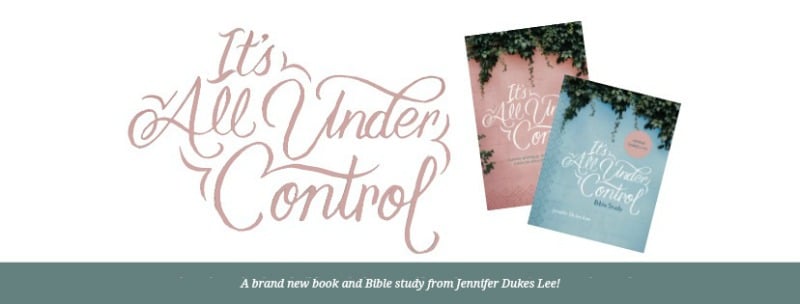Finding Words Through Tears
He was laid out on creamy velvet inside the bronze, 18-gauge steel box at the front of the Baptist church, crammed with people and pews and the heavy perfume of gladiolas.
The boy was only 14. Shot in the head on the streets of Omaha.
A woman wearing a wide-brimmed yellow hat played the organ. I shuffled down the aisle in the procession toward the casket, with my news-reporter’s notebook tucked discreetly in my purse.
The boy’s mother said I ought to come to the funeral that day. I remember her words and her one wagging finger as tears welled in her eyes: “If nothing else good comes of my son’s death, maybe someone will read your story and lock up their guns.”
Knees weak, I reached casket’s edge. They say news reporters aren’t supposed to cry, but grief tumbled wet down these cheeks.
He was part man/part boy, dressed up in navy-blue. His mama had tucked a threadbare, stuffed bunny into those boy/man hands. And the people shuffling down the aisle groped for words of comfort: He looks so peaceful. He’s in a better place.
The mother – steely strong in those high heels – shook their hands.
I took my place in the back pew, a spectator at the funeral of a stranger. I cried for a life interrupted by an errant bullet; for the mama in the front; for my own children, yet unborn; and for a faith I had yet to fully grasp.
My writing changed that day, because for the first time I can remember, I wrote from the same place that held my tears.
***
Robert Frost once said, “No tears in the writer, no tears in the reader.”
And as I’ve grown in my vocation of writing – and as I’ve grown in my faith – I know the truth Frost speaks. I’ve softened in my “older” age, and when I write, the tears flow more easily than they once did.
As writers, we take snapshots that reveal more than “just the facts” that we’ve uncovered at the side of the casket, or during bedtime prayers, or behind the cubicle walls, or in the hospice house.
We attempt to reveal very life, to unzip ourselves as a way to
expose our souls.
It feels risky.
In snippets and moments caught in freeze-frame, we capture ordinary experiences that speak to extraordinary truths. And this can never be done with a cold recitation of facts. And it can rarely be done if we back away from stories that evoke deep joy or sorrow or longing within us.
For me, this sort of writing can be painful, both for what it reveals and what it fails to. Writing can sometimes feel like the bleeding of self onto the page – even in the most joyful of stories. For we often fall short in finding the right words to capture the deepest parts of the human experience.
Other times, the impassioned words spill as readily as the tears – or tumble as ferociously as the laughter. And sometimes, I’m surprised by the tears. Maybe I didn’t know how I really felt until I started writing.
I admire writers like the Apostle Paul. Because even he cried as he wrote.
He wrote to the Philippians: “For, as I have often told you before and now say again even with tears …”
These words we write? They draw from a well where faith and tears and laughter and words are all intertwined.
Whether we write in newspapers, or blogs, or journals, or Hallmark cards, or Facebook statuses, our words and emotions are interconnected.
Because we draw from a place that can stand at the casket’s edge to see more than death. Indeed, we know the promise of something greater.
***
Yes, my writing changed that day in the back pew of a stranger’s funeral. And you know what? My faith did, too.
(Posting from the archives today.)



“bleeding of self onto the page”
This is what most attracts and frightens me about the art of writing… you word it perfectly.. to bleed we must first be cut and open…
So true. In fact, I was just talking on the phone with a writer-friend, Lyla Lindquist of http://www.adifferentstory.net, about this very thing. She did this sort of thing so beautifully earlier this week in this post:
http://adifferentstory.net/2011/05/30/on-being-found
It can seem risky, this kind of soul-bearing. But it seems to me that the best writing comes when the writer takes the biggest risks.
Beautiful risk, this, isn’t it?
Hi Kelly,
Yes … And your risks always look beautiful. Thank you for that.
and an even bgger risk to not take that risk, true?
Amen … Good point.
As I read this post I couldn’t help but think how you can tell if a pastor does this in his preaching. There are those who just talk and then there are those who bare their soul as they preach.
Thanks for dropping by, Matt.
You can hear it in the voice itself, right? A bared soul can rise right up into the vocal cords, until it is wringed of emotion.
Thank you for your thoughtful sharing.
I needed to read your words today. Thank you.
Thank you, Holly. xoxo
“We capture ordinary experiences that speak to extraordinary truths.” – Love that sentence. You do this well.
I also agree with Matt, the person who commented before me about pastors. My husband bleeds and often tears up as he preaches. He’s a passionate person and I know I’m biased, but I think he’s a good preacher.
Thanks for the good thoughts. Hope your summer is off to a good start.
Hi Angie ~
I never got to hear your husband preach, but I can tell this about him (from your own sharing at your blog.) That’s a beautiful thing. I love his passion for the Lord — and I love yours, too!
Have a great summer.
Powerful words here! That is so amazing isn’t it? That words have power? More power than anything really because they are what form thoughts that dictate worldview and choices and produce outcomes. It’s why I am head over heels in love with God’s Word. May it saturate my soul that my words would only and always be His. True. Power to influence for Good by pointing to Him.
Great post as always!
Kathy,
Your words here are a blessing. I love the truth you speak, about our words harboring real power.
And that God would think to call His Son The Word? Mmmmm… That is so, so cool.
“the vocation of writing”
It is that, isn’t it.
Yes, Dawn. And you “vocate” well. 🙂
I’d heard that quote, but didn’t know it was Robert Frost. I like it even better now (*sniff* *sniff*)
I didn’t know either, Megan … until when I first published this piece a year ago as a guest post for Michelle DeRusha. I had to “Google” around and discovered that Robert Frost was the source!
Jennifer,
You about killed me with the bunny reference. (Our oldest is fifteen and the threadbare stuffed bunny that his real bunny, “Bunny,” is named after is still in his room somewhere.)
I can’t believe how frightening it is to open a new area of my heart and then write from that place. I think simultaneously “I’ll never share this,” and “I better write this well because of course I’m going to share this.”
You wrote, “Maybe I didn’t know how I really felt until I started writing,” an that’s been my experience, too! Sometimes I’ll have to rewrite something because it wasn’t true enough the first time, and it was only writing it that clued me in. (I kinda thought I was a freak for that. I guess I need to connect more with other writers.)
(Um… and FYI, yes, it did feel uncomfortable to use the word “other.”)
🙂 Helen
Writing from the place that stores both tears and laughter is what gives life to words. Life truly lived and words truly written are risky propositions but very much worthy of such peril! :o)
It is a hard soul-work, isn’t it, Denise? Thanks for dropping by today. xoxo
Jennifer, this was a powerful post, sweet friend. The quote from Frost is so true. I am so thankful that writers such as you pour their heart and soul into their writing.
Hugs!
Susan
I find it hard because some of my deeper stories involve my kids (and my failings with my kids). What makes it hard is that highlighting my failings with my kids often drags in *their* failings, and I’ve chosen not to bring those out in the open.
Also, some of my stories involve extended family, people who are ultra-sensitive and defensive. I don’t feel I can tell those stories publicly, either.
Not sure how to tell the good stuff, the true stuff, the heart-rich stuff.
I struggle with these issues of sensitivity, too, Ann. What a delimma.
I often try to discuss it without really getting into the details of it in order to protect the people I love. They have a right to their privacy, regardless of the fact that I seem willing to air my laundry so often online.
I really, REALLY get this tension, Ann. Thank you for bringing it to the forefront.
I don’t think that we writers are required to share everything. But when we DO choose to share a story, we do our readers and ourselves a favor when we include the parts that touch us most deeply, choosing words and phrases and anecdotes that most accurately convey our emotion. I think you do this quite naturally, Ann. … And it’s not always a sad story. Sometimes, it’s a story like you shared recently at The High Calling about your published book arriving on the doorstep. You conveyed real emotion. And it was just right.
Thank you, Ann, for sharing.
your words bleed well … and deep
I think that we really don’t know how to write any other way because at the heart of it all we want to be real.
Yours are real Jennifer.
Love the Frost quote…healing and encouragement comes in a peculiar elixir of tears and laughter, I think. Sometimes we write with one, sometimes the other…
“In snippets and moments caught in freeze-frame, we capture ordinary experiences that speak to extraordinary truths.”
“For we often fall short in finding the right words to capture the deepest parts of the human experience.”
for these very reasons, i love the medium –the gift!– of photography… it is what you have written here that i am able to find, and sometimes even capture, with camera and lens. you had captured it here so perfectly with your words…